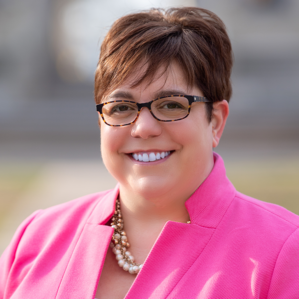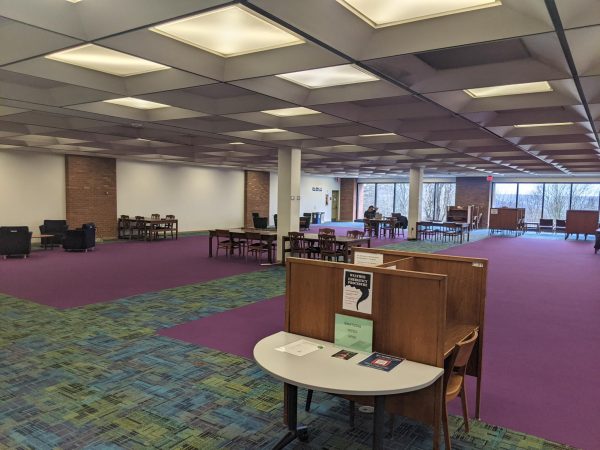ASG discusses implementation of Title IX advisory committee
Allegheny Student Government conducted a five minute moderated discussion on the creation of a Title IX Advisory Committee at its meeting on Tuesday, Feb. 28. The creation of the committee is part of the presidential platform of Director of Communications and Press Mark Myers, ’19, and his running mate Rowan Castellanos, ’19.
Myers brought the creation of the committee to the general assembly but said he did not want to see it passed that day. He said he wanted to hear discussion.
Class of 2020 Vice President Jason Ferrante, who co-sponsored resolution 17-01, which reaffirmed ASG’s commitment to work with administrators on Title IX, opened the discussion by coming out in support of the committee.
Everyone has a role to play in bringing down sexual violence.
— Bruce Harlan
Ferrante said he felt it would be beneficial for ASG to bring members of different groups in to provide input on how the committee could best be implemented.
“I think it would be great to pull other groups in on this,” Ferrante said.
In addition to seeking feedback from other student organizations, Ferrante said it would be wise to seek advice from Title IX Coordinator Gilly Ford, Director of Public Safety Ali Awadi and possibly legal counsel to address what the committee can legally do.
Sen. Amy Currul, ’17, said she felt revisions should be made to more precisely explain what the committee’s role is and what it will do to facilitate change on campus.
“It is kind of vague in terms of what [the committee] is supposed to do,” Currul said.
Other members of ASG pointed out that the draft of the resolution did not address how many members the committee would have or how they would be chosen. Myers said he would keep this in mind as he made revisions, but said he hopes to draw committee members from a diverse group of students.
“I would like to bring as many people to the table as is appropriate,” Myers said.
Sen. Alexander Reganata, ’18, said he felt the committee would largely deal with issues various groups on campus already address.
“It seems to me this group would not serve a purpose on this campus that is not being met on campus already,” Reganata said.
Myers said after speaking with Ford, they both feel the committee could add something to the campus community by facilitating collaboration between the various groups that work on Title IX issues. He said a similar committee has been implemented successfully at the University of Wisconsin-Madison.
At the conclusion of the five minute discussion period, as promised, Myers did not seek a vote.
Bruce Harlan, executive director of Women’s Services, was also in attendance and addressed ASG. Harlan spoke regarding Women’s Services’ partnership with Allegheny and the organization’s approach to the bystander training it provides to students.
Harlan said the model the organization uses in its educational materials and programs is called “bring in the bystander.” He said this model teaches students to be proactive bystanders and to intervene instead of just telling them not to perpetrate sexual assaults or to protect themselves.
“Everyone has a role to play in bringing down sexual violence,” Harlan said.
Despite recent “bad press,” according to Harlan, he feels Allegheny is committed to and is currently working to bring down incidents of sexual violence.
“I just want you to know … that Allegheny College feels very strongly about this issue and [is] trying to bring the level of violence down,” Harlan said.
Harlan said he wants ASG to understand that the college administration is ready and willing to work with them.
President Tess Bracken, ’17, used her report to clarify information regarding summer housing for students doing faculty-student research on campus. Bracken said a post on the Class of 2019 Facebook page prompted her to verify what changes have been made.
After speaking with Provost and Dean of the College Ron Cole, Bracken said she has learned the summer housing fee has increased from approximately $14 a week to $75 a week according to an email from Cole.
In the email, Cole also said that in the past, students received a weekly stipend of $300 a week for summer research from which the taxes on the living space were subtracted, leaving them with approximately $286 a week.
Beginning in summer 2017, he said students will now be paid an hourly wage of $10 an hour with a cap of 35 hours a week, meaning a maximum weekly income of $350 from which the housing fee will be deducted. This will leave the student with a maximum income of $275 a week. Cole said the change is to comply with the Affordable Care Act.
Cole said the college is currently working to find ways to make life on campus over the summer more comfortable for students. He said the college is exploring transportation options for students to have more access to grocery stores in Meadville and fully-functioning kitchens.
Director of Finance Luke McBride, ’18, also received approval from the senate to spend up to $1,000 to host a philanthropic event in collaboration with the Beta Chi chapter of Theta Chi.
The event, according to McBride, would help to raise funds for the United Service Organizations, which works to help military veterans and their families. He said the hope is to bring comedian Evan Wecksell to campus to perform at the event.
McBride said ASG would be providing the majority of the funds, since they are a larger organization with more funding.








